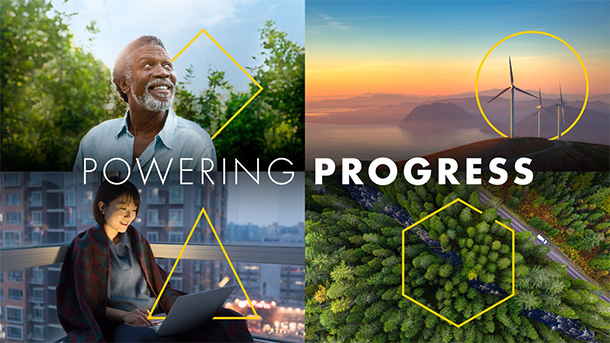Social and economic impacts
We continue to assess our social and economic impact in a number of countries and regions. To do this, we have enlisted the help of Oxford Economics using its Global Sustainability Model.
In 2021, Shell had published its first report based on 2019 social and economic performance data. It detailed the impacts of our activities in five countries: the Netherlands, UK, USA, Nigeria and India.
In 2023, we are working to complete further reports, based on 2021 social and economic performance data for the 27 European Union member states. This work includes a combined report for Poland, Bulgaria, Hungary, Czech Republic, and Slovakia, as well as individual reports on these five countries.
These new reports aim to provide performance data on Shell’s contribution to in-country gross domestic product, job numbers, tax payments to governments, and our spending on social and educational programmes. They also provide details of our operations and our procurement of goods and services in these regions and countries.
Supply chain engagement
Building strong relationships with our suppliers, including contractors, is essential to delivering new projects and running our operations. Suppliers often play an important part in Shell having a positive impact on local communities and achieving business success.
Shell aims to work with suppliers that behave in an economically, environmentally and socially responsible manner, as set out in our Shell General Business Principles and Shell Supplier Principles. In 2022, we spent around $41.5 billion on goods and services from around 24,000 suppliers globally.
The way we engage with our contractors and suppliers is based on our Shell Supplier Principles, which are embedded in contracts. They require contractors and suppliers:
- to commit to protect the environment in compliance with all applicable environmental laws and regulations;
- to use energy and natural resources efficiently; and
- to continually look for ways to minimise waste, emissions and discharge from their operations, products and services.
We will include requirements in our purchasing policies to reflect our environmental framework, and take the energy efficiency, material efficiency and sustainability of products into consideration in our purchases.
We also work with our partners and industry peers to include worker welfare in industry standards, guidance, and best practice. This helps raise expectations and levels of consistency across the industry. We participate in organisations such as:
- the Building Responsibly group of engineering and construction companies working together to raise the bar in promoting the rights and welfare of workers across the industry;
- the International Association of Oil and Gas Producers (IOGP); and
- Ipieca, the global oil and gas industry association for advancing environmental and social performance across the energy transition.
We also work closely with our key contractors. As a result, by the end of 2022, 23 of our biggest contractors had signed up to the Building Responsibly principles, which cover more than 1 million workers.
Helping our suppliers decarbonise
We continually work with our suppliers to find ways to reduce greenhouse gas emissions across our supply chains. We seek to understand their energy needs and jointly identify potential low-carbon solutions that are economically sustainable.
In 2021, we rolled out a new digital platform, the Shell Supplier Energy Transition Hub, free of charge to our supply chain and any other interested company. The platform enables them to set emission ambitions and track performance, share best practice and exchange emissions data with their own supply chains. By the end of 2022, 1,039 of our suppliers had joined the platform, 460 of which have already
set emission reduction targets. This is more than a fourfold increase on 2021 in both instances.
See our website shell.com for more information about how we engage with contractors and suppliers.
Social investment
We make social investments in areas determined by local community needs and priorities. This investment is sometimes voluntary, sometimes required by governments, or part of a contractual agreement. In 2022, we spent almost $260 million on social investment, of which 30% was required by government regulations or contractual agreements. We spent the remaining $182 million (70%) on voluntary social programmes.
2022 Social Investment spend by theme
Around $92 million of our total social investment spend in 2022 was in countries that, according to the UN Development Programme’s Human Development Index 2021, have a gross national income of less than $15,000 a year per person.
2022 Social Investment spend by region
See our website shell.com for more information about our social investment.










